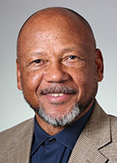Background:
Dental care access is very limited to individuals of lower socioeconomic status. In California, a large subset of this population includes migrant families. Children of farm workers experience a rate of tooth decay twice that of the general population. Children with developmental disabilities and special needs have an increased risk of poor oral hygiene and periodontal disease. Within the San Andreas four county region of California there are no state designated oral health facilities. Additional factors that contribute to low rates of access of oral health services include, but are not limited to, low educational levels, lack of citizenship, poverty, and a migrating population. Documentation of oral health status and early intervention for children of migrant farm workers may reduce the financial burden of providing emergency oral health care services to this population.
Objectives:
The purpose of this project is to gain insight in to the oral health care of migrant children with developmental disabilities and special needs with a focus on families of migrant farm workers in Northern California. The results of the study will help to elucidate the oral health care needs of the migrant population and help to identify the barriers that oral health care providers face when treating the target population.
Methods:
A literature search was performed using the PubMed, ERICK, and Google databases using the following keywords: developmental disabilities, California, migrant, and oral health. Retrieved articles were reviewed for appropriateness for the study. Interviews were conducted with specialists who provide oral health care to children with developmental disabilities and administrators in regional centers for placement and quality review of individuals with special needs in the San Andreas four county region of California and the Tufts University School of Dentistry affiliated oral health centers in Massachusetts. Interviews were conducted face-to-face and via telephone by the same individual. Two surveys were created and distributed to dental health care providers and health care administrators within the San Andreas four county region of California. The survey obtained information about the respondents experience with children with developmental disabilities and special needs. Survey content includes: demographic information of the respondent and treatment of patients with disabilities.
Results:
The comprehensive literature review suggests that farm workers are the poorest working group in the state of California. In addition, the target population is vital to the agriculture industry and Californian farms produce half of the nation’s food, cotton, beef, milk, wine, and cheese. Over sixty percent of farm workers in California are illegal immigrants, however, 70% of the children are born in the U.S. Literature also suggests that many of the disabilities are a result of environmental and occupational exposures and injuries, as the state of California is rated highest in occupational injury. Some research shows that there is a possible correlation between pesticide and birth defects and the effects of methyl mercury is currently on the research agenda. Most of the literature articles retrieved during the literature search focused on the adult population with limited information available for the pediatric population.
Subjective data collected from the interviews suggest that oral health is viewed as cosmetic and not an essential healthcare need for children with developmental disabilities and special needs. Oral health care providers cite limited education and experience of the provider, space limitations, inadequate dental equipment, and inability to provide general anesthesia as reasons why they choose not to provide services to this special needs population. In addition, the fear of potentially increasing the percentage of their practice with low reimbursement insurance and/or no insurance by assuming care of family members of the disabled is financially unappealing. At least one program has been initiated to address prevention for children with special needs in California and initiatives are underway to increase the number of oral healthcare providers skilled in the treatment of children with developmental disabilities. For some interviewees, the issue of providing care to the special needs population as it relates to migrant farm workers has never been addressed. Survey results are pending.
Conclusion:
Further research is needed to identify barriers to access to oral healthcare services as they pertain to the target population, children of migrant farm workers with developmental disabilities and special needs. To conduct this intensive, comprehensive research, key stakeholders will need to be identified and financial support secured.
Preceptor:
Saskia Estupiñan-Day, DDS, Pan American Health Organization, Regional Director


